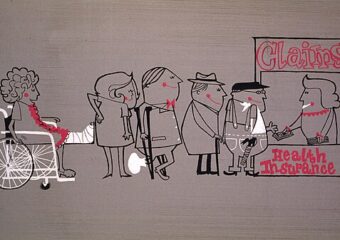To Judy Segal, illness can be a matter of argumentation, i.e., illness is what the ill person can persuade other people to agree illness is. People with migraine must persuade their physicians that they are not migraine-type people but rather that they suffer from migraine symptoms. People with constellations of malaise, exhaustion, depression, and joint pain must persuade others that they suffer from fibromyalgia. Negotiations may ensue when others are not in agreement with people who argue they are ill.
Similarly, sickness can be distinguished by the success or failure of the arguments people make toward social recognition. Further, illness as argumentation accentuates the distinction between illness and disease, because as an argument the process of determining illness can accommodate more and varied inputs, as Viesca describes:
Illnesses, as classified items, exist only in specific historical and cultural contexts and are always expressed in particular languages, in concrete situations wherein it’s possible to recognize the confluence of cognitive factors, systems of cultural representations, mythical beliefs, identity and difference relationships, social relationship nets, all factors defining individual characteristics needed for the illness systems and particular illnesses construction.
p. 31
In contrast, at least for the last two-hundred years, Biomedicine limited what could be used to determine disease to inputs that are biological and nontemporal. Appendicitis results from a rotting appendix now as it has for the last two centuries. Argumentation is a part of determining disease as well because the arguments about disease can involve social and cultural dimensions, but the arguments are centered more on interpretation of biological inputs.
Sources:
Judy Z. Segal, “Illness as Argumentation: A Prolegomenon to the Rhetorical Study of Contestable Complaints,” Health 11, no. 3 (2007): 228-238.
Charles E. Rosenberg, “Framing Disease: Illness, Society, and History,” in Framing Disease: Studies in Cultural History, eds. Charles E. Rosenberg and Janet Golden (New Brunswick, NJ: Rutgers University Press, 1992).
Alex Berenson, “Drug Approved: Is Disease Real?,” The New York Times, January 14, 2008.
Carlos Viesca, “The Construction of Illness: A Context Problem,” in Life – Interpretation and the Sense of Illness within the Human Condition: Medicine and Philosophy in a Dialogue, eds. Anna-Teresa Tymieniecka and Evandro Agazzi (Milan: Kluwer Academic Publishers, 1998).
Ludwik Fleck, Genesis and Development of a Scientific Fact, trans, Fred Bradley and Thaddeus J. Trenn, eds. Thaddeus J. Trenn and Robert K. Merton (Chicago: University of Chicago Press, 1981).



